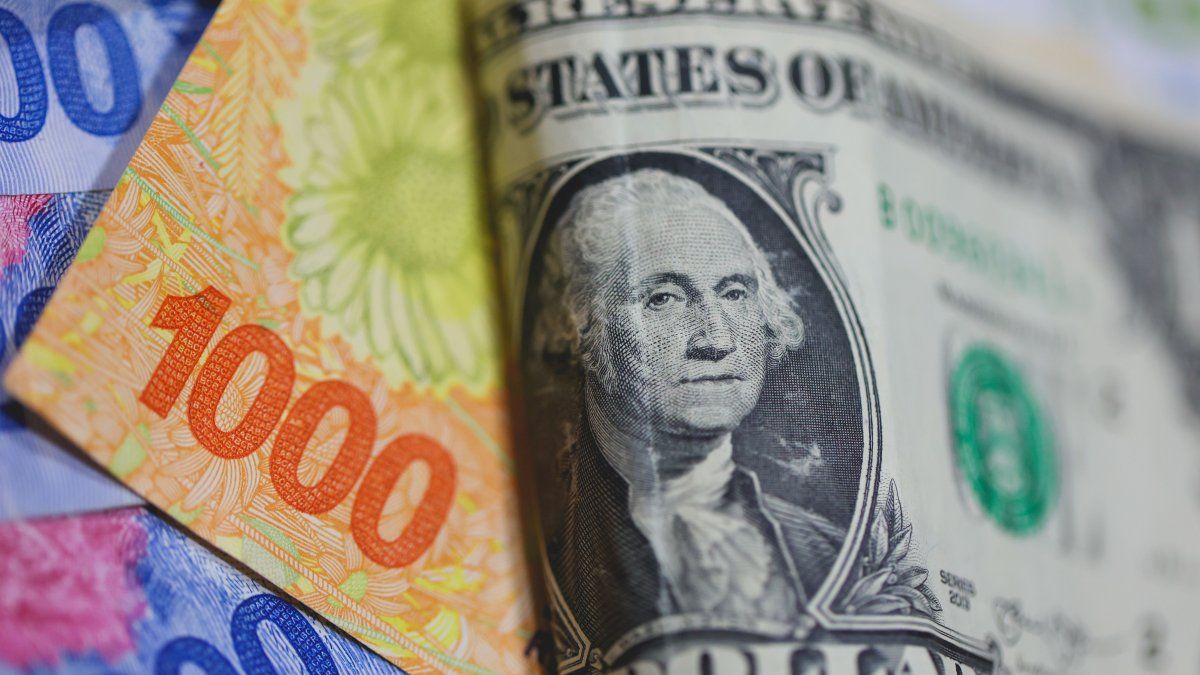Meanwhile, the losses of the papers of local companies listed on Wall Street (ADRs) were again led by Mercado Libre (-4.6%). The assets of the firm founded by Marcos Galperín show a drop of 23.2% at the beginning of 2022, while those of Globant accumulate a decrease of 21.6%.
The decline in these shares coincides with the decline of technology companies in international markets as a result of the signals the Fed gave about an imminent tightening of its monetary policy, which would imply a reduction in their asset holdings and a rate hike earlier than expected.
The founder of the financial education portal interfinance, Sergio Morales pointed out in dialogue with Ámbito that the performance of Mercado Libre and Globant has to do with the fact that “certain technology companies are adjusting due to the overshooting that they had post-pandemic”. The specialist added that particular issues such as the capital increase announced by Mercado Libre also influence, but clarified that even with this decline, the papers are more than 100% above their 2020 floor.
In a similar vein, the Delphos Investment analyst, Leonardo ChialvaHe told this medium that the tech sector is experiencing a “purification” after inflating in the years of the pandemic.
In the last hours the IMF warned that “emerging economies must prepare for hikes in US rates”, which could trigger capital outflows and a depreciation of their currencies.
At the local level, the market’s attention remains on how the problems will be solved. differences between the Government and the institution led by Kristalina Georgieva regarding the fiscal path that Argentina should follow. From Casa Rosada they seek that the reduction of the fiscal deficit be gradual, to reach a balance in 2027, while from the agency they intend for the correction to be faster, by cutting spending in real terms.
Where there is agreement is on the need to reduce the financing of the deficit via issuance, to combat inflation with various tools (less issuance + increase in exports + price agreements to coordinate expectations), to have an exchange rate consistent with the the country’s ability to accumulate foreign currency, and to have positive real rates to encourage savings in domestic currency.
The latter has already begun to be reflected in the recent decision of the Central Bank (BCRA) to increase its reference rate to 40% (48.3% in effective terms), although it still seems insufficient to beat an inflation that in 2022 would reach 54 , 8% according to the consulting firms and financial entities that participated in the last REM.
Bonds and country risks
For its part, sovereign dollar bonds sank to 3%, after collapsing to 8% last week, affected by tensions with the IMF.
In this context, Country Risk rises 17 units (1%) to 1,819 basis points, the highest level since December 1.
“IMF tensions tend to have a greater impact on dollar bonds and, therefore, on Country Risk. We believe that in the base scenario of an agreement with the IMF, in the short term there will be a lot of volatility in securities, in fact , is what can be observed in the experiences of other countries, “he said in dialogue with Ámbito Maximiliano Donzelli, Head of Research at InvertirOnline (IOL).
However, the analyst projected that “after an agreement is reached, it should be expected that the country risk begins to decrease (in the period of 6 months to 1 year) and in that sense, dollar bonds will be hard and mainly those that they are foreign law, they should benefit. “
Beyond the uncertainty surrounding the agreement with the Fund, the Government shows signs of wanting to reach a middle ground, based on the interest payments made recently and the statements of officials warning about the risks of not agreeing.
At the same time, this Monday, US $ 693 million were paid to private bondholders for the second interest coupon agreed in the 2020 restructuring.
In the exchange, Economy Minister Martín Guzmán achieved a reduction in average interest rates, from approximately 7% to 3%.
Coupons have a bottom-up structure to ease payments in the early years. In this opportunity, the rate will be between 0.5% and 2.5% nominal per year depending on the bond.
The next debt payments correspond to maturities with the IMF. In the next three weeks there are obligations for $ 1.1 billion. In March, another US $ 2,900 million will expire with the agency.
Source From: Ambito
David William is a talented author who has made a name for himself in the world of writing. He is a professional author who writes on a wide range of topics, from general interest to opinion news. David is currently working as a writer at 24 hours worlds where he brings his unique perspective and in-depth research to his articles, making them both informative and engaging.




